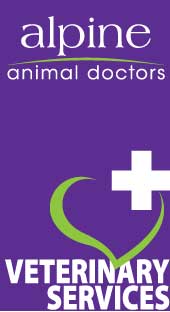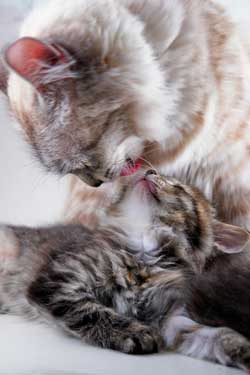alpine animal doctors veterinary services
VACCINATIONS

For more information or to make an appointment for this service please call...
5756 2444
- Monday: 8.30 to 5.30
- Tuesday 8.30 to 5.30
- Wednesday: 9 to 1
- Thursday: 8.30 to 5.30
- Friday: 8.30 to 5.30
- Saturday: 9 to 1
- Sunday: Closed
7047 Great Alpine Road,
Porepunkah, VIC 3740
Why you should vaccinate your pet
Vaccinations save lives. A simple series of shots when an animal is young, plus booster shots throughout the life of your pet, will provide protection against a range of serious diseases.
Some of these diseases are transmissible to other animals, and in some cases to people, so you are not only protecting your own furry family you are helping keep the incidence of infectious, life threatening disease outbreaks under control.
There are two types of vaccination used for animals: Core vaccines immunise your pets against the most serious, difficult to treat and transmissible diseases. They are essential for every pet, dog or cat. Non-core vaccines offer protection against milder diseases and/or against conditions which may affect animals in specific circumstances.
Core vaccines for dogs cover parvovirus, distemper and adenovirus. For cats the core vaccines protect against FPV (feline parvovirus), FHV (herpesvirus) and FCV (calcivirus).
In dogs, the non-core vaccines can provide protection against kennel cough (parainfluenza virus and Bordatella br. Bact), corona virus and leptospirosis.
Non-core vaccines for cats protect against FeLV (feline leukemia virus), FIV (feline immunodefficiency virus) and Chlamydophila felis.
The core vaccines are vital for the ongoing health of your pet. Ideally they should be administered to puppies and kittens in two shots, the first at 6 to 8 weeks of age, with a second, adult, shot at 10 to 12 weeks. These vaccinations ‘kickstart’ their immune systems but are short lived and need to be followed by a booster shot at one year old.
After that, your pet will need regular booster shots, usually every year, to ensure ongoing protection (see How often should I vaccinate my pet?). If your pet was not vaccinated as a puppy or kitten they will still benefit from being vaccinated at any age.
The non-core vaccines are equally important to your pet’s health but not every pet will need or benefit from them. In some cases external issues will be the deciding factor, e.g., a boarding kennel will usually insist that a dog has been vaccinated against kennel cough (a C5 or C7 vaccination). In other cases the need will be dictated by where the animal lives and/or what it does. For example, we will always recommend that a working dog be given a C7 vaccination for protection against corona virus and leptospirosis, a nasty disease that’s easily transmissible to humans.
To find out what level of protection and frequency is best for your particular pet you should fully discuss the question of vaccination with Dr Bek. Our in-house pathology facility allows us to test your pet to accurately design an immunisation regime that offers the best protection with minimum risk and cost.
At Alpine Animal Doctors our policy is to ensure that each individual pet receives the optimum protection consistent with keeping them healthy and avoiding potential side effects. We encourage our clients to ask as many questions as they need to be fully informed.
Whether you decide on annual or triennial vaccines, the most important thing you can do is to make sure that your pet receives an annual check up at the hospital.
How much does it cost?
Cost varies depending on the level and frequency of the vaccination/immunisation program you choose for your pet.
In general, costs for annual vaccinations for dogs range from around $50 to $100 per year depending on your required level of vaccination. When you think about vaccinations you need to weigh up the relatively low cost of regular protective measures against the likelihood of a fatal outcome and/or the much higher costs you would incur for emergency treatment should your pet contract one of the serious diseases vaccinations protect against.
Find all of our veterinary services here...
NOT THE SERVICE YOU WERE LOOKING FOR?

LEARN MORE
The links below provide more information on some important elements of vaccinations. Each link will open in a separate popup window.
How often should I vaccinate my pet?
Explainer: The different types of pet Vaccinations
